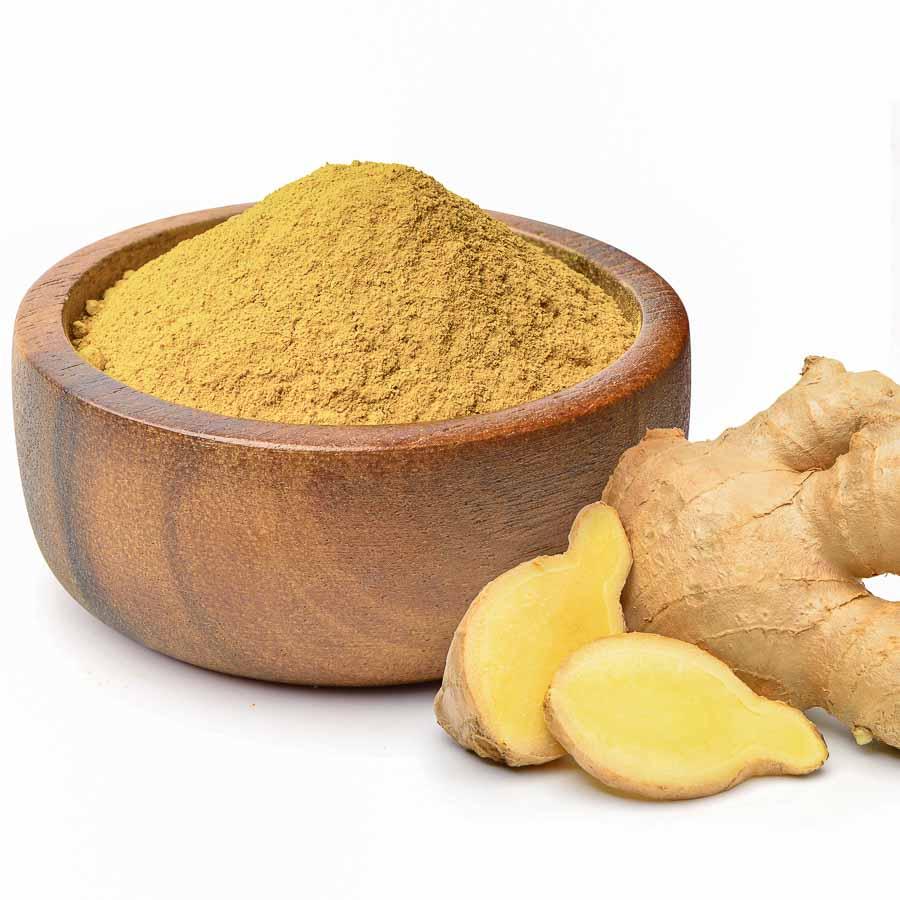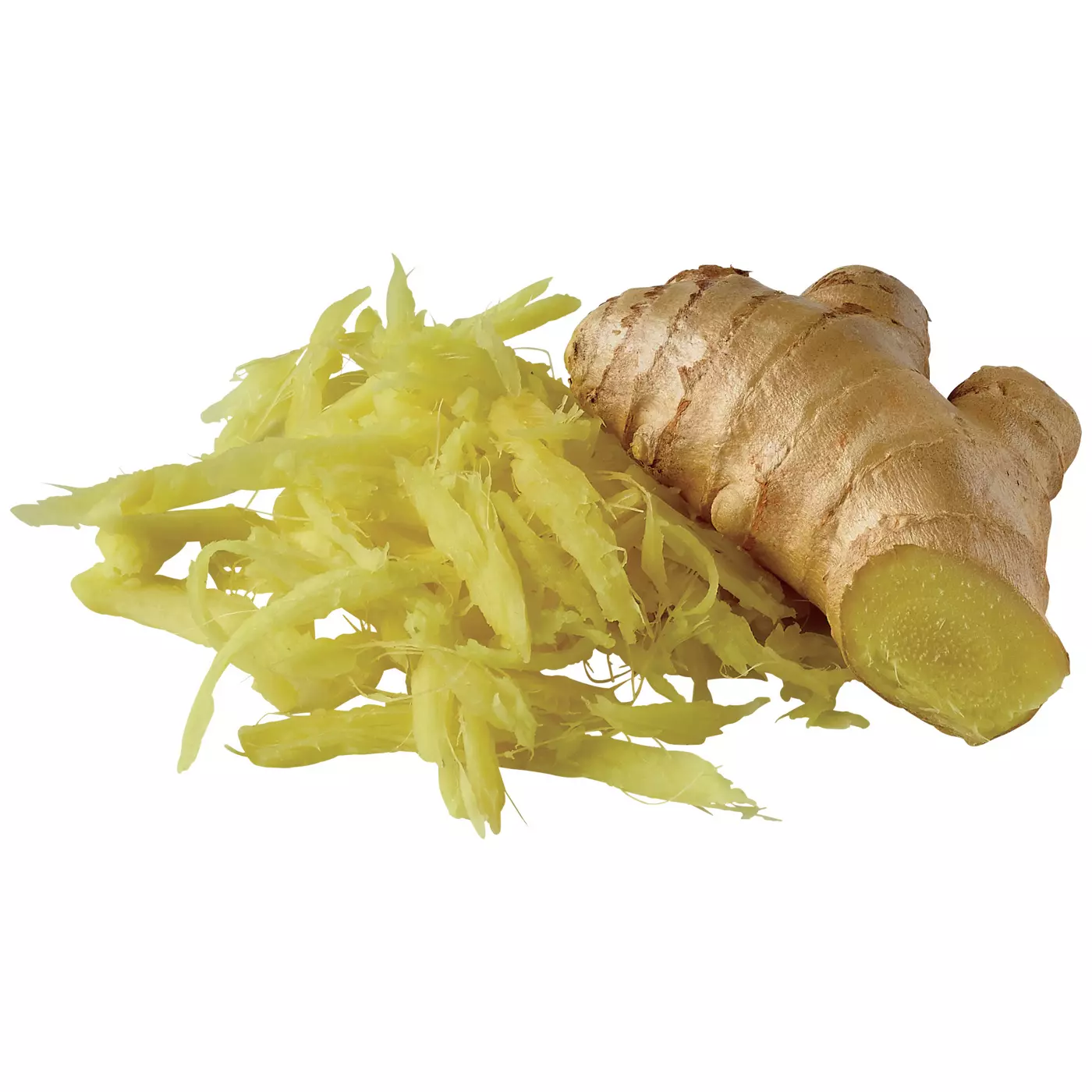Is It Ok to Eat Raw Ginger Root?

Table of Contents
Eating raw ginger root isn’t just okay, it’s an excellent source of Vitamin C and Vitamin B6 and rich in antioxidants, which is important to keep the body functioning smoothly. Ginger is a powerhouse of several nutritional compounds that can benefit you in several ways. You should incorporate raw ginger root in your daily diet, as it has healing properties and builds immunity.
Grown in South and Southeast Asian countries like Nepal, China, and India; tropical Africa, parts of Central America, Australia, and the Caribbean, ginger is made up of chemical compounds like gingerol, paradol, zingiberene, and shoals that make it a powerful herb.
Unfortunately, most people aren’t aware of the nutritional benefits of ginger or prefer to eat it cooked only due to its zingy, bitter taste and strong essence.
But did you know that maximum benefits can be derived from raw ginger? Want to know more about it? Read the article to know all the benefits of ginger grown in UK.
Why Should You Eat Raw Ginger Root?
Ginger consumed in any form is known to make the body immune to fight off several illnesses; however, ginger is most effective when consumed in its natural, raw state. Consuming ginger can benefit you in the following ways.
- Aids Digestion: Raw ginger root works exceptionally well in relieving indigestion. It reduces intestinal cramping and prevents gastronomical issues like flatulence and bloating.
- Weight Loss: Gingerols and shogaols present in ginger promote effective weight loss. Consumption of ginger stimulates calorie burn and reduces feelings of hunger. Regular intake of ginger water for 21 days can help reduce belly fat.
- Treats Morning sickness and nausea: Gingerol in ginger works effectively in soothing morning sickness in pregnant women and nausea in general.
- Relieves Sore Muscles: Eating raw ginger root every day in small quantities elevates the healing process and helps relieve muscle soreness and body pain.
- Soothes Menstrual Pain: Gingerol has anti-oxidant and anti-inflammatory properties that ease menstrual cramps and irregular periods caused by hormonal imbalances.

- Lowers blood pressure and hypertension and prevents heart-related illnesses: Ginger prevents the formation of blood clots in arteries and blood vessels. Blood clots restrict blood from flowing through the circulatory system, which can lead to blood pressure shooting up. Raw ginger root helps prevent the formation of blood clots that can cause heart attacks or strokes.
- Deters Cancer Growth: Studies have proven that the consumption of ginger suppresses the growth of different cancers in the body. Ginger also soothes chemotherapy-associated nausea, vomiting, and motion sickness.
- Reduces Inflammation: The antioxidant and anti-inflammatory properties in ginger help to get rid of free radicals that can cause cell damage and curb arthritis pain.
- Protection against Infection: Fresh ginger is known to fight germs and bacteria like E. coli and Shigella. Gingerol in the ginger helps fight fungal infections like Candida Auris.
- Improves blood sugar: Ginger is low in carbohydrates and calories and contains potassium, fiber, and iron. It helps reduce blood sugar levels and helps regulate insulin response in the body.
- Protection against Alzheimer’s: Regular consumption of ginger improves brain function and reduces oxidative stress and chronic inflammation, which are the root causes of age-related cognitive disorders and other diseases like Alzheimer’s, Parkinson’s disease, and multiple sclerosis.
- Relieves from arthritis pain: Arthritis affects the joints, which enhances pain and swelling and can affect the bones and cartilage. Ginger is an anti-inflammatory that helps reduce arthritis pain and swelling. Nutrients such as copper, magnesium, manganese, and Vitamin B6 present in ginger are important for joint pain.
- Anti-oxidant: Ginger contains antioxidants that help manage free radicals. When the radicals increase in the body, they damage the cells. Ginger helps repair the damaged cells and stimulates the growth of new cells. Due to the presence of powerful compounds like gingerol, shogoal, etc., ginger has anti-inflammatory properties, antioxidants, and anticancer properties that aid in fighting illnesses.
How Much Ginger Should You Consume in a Day?
Now that we have explained why including ginger in your diet is a great idea, you should be cautious of the quantity you intake daily, as raw ginger root, when consumed more than needed, can do more harm than good. Ginger generates heat in the body, and that is one of the reasons why it’s a great natural remedy for flu and cold.

It’s safe to eat raw ginger root daily, but you should not take more than 3-4 grams of it daily; pregnant women should not take more than 1 gram as it can lead to miscarriage. Ensure not to consume more than 6 grams of ginger daily, as excess of it can be harmful. Eating more than the required amount can lead to gastrointestinal issues like heartburn, diarrhea, or heartburn.
Why Should You Take Raw Ginger-Root in Its Natural State?
Ginger can be taken in the form of powder, oil, juice, or peeled and diced. Unpeeled ginger can be stored in the fridge for up to three weeks, and peeled ginger can be stored for a couple of weeks, too. However, raw ginger taken in its fresh state is most impactful as fresh ginger contains more gingerol compared to dried or powdered ginger.
To Conclude!
The multiple benefits of ginger make it an appealing addition to your daily diet, but remember that anything consumed more than its required quantity can have a damaging effect rather than a positive one.
Ginger is composed of powerful compounds like shogoals, gingerol, and paradols that build immunity and kick out several ailments from your system. Apart from the benefits mentioned above, ginger also helps control cholesterol, protects from cardiovascular diseases, and helps cure cold and flu, increases metabolism and immunity.
Hopefully, the data provided here serves your purpose, and you gain maximum benefit from this research.






